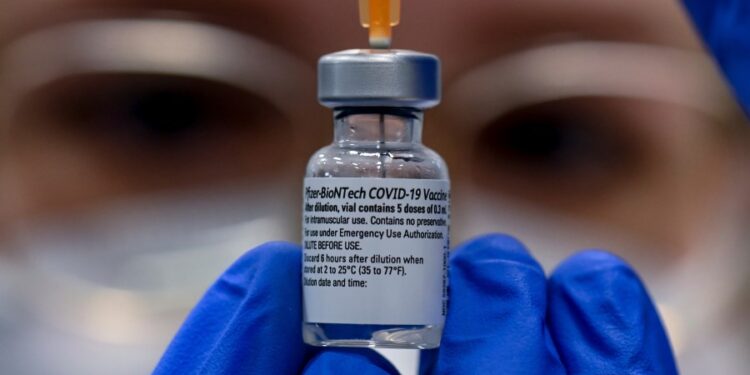
(NewsNation) — President Donald Trump’s new “Make America Healthy Again” commission is focusing on specific COVID-19 vaccines possibly linked to heart disease as some states push to restrict their use.
Vaccines using messenger RNA, or mRNA, technology became widespread during the pandemic. With limited long-term studies available, the Trump administration is revisiting these vaccines.
What are mRNA vaccines?
Vaccines using mRNA are based on RNA technology that dates back to the 1960s.
In response to the coronavirus pandemic, Pfizer and Moderna used the technology, which teaches the immune system to fight the virus without containing the virus itself, for their COVID-19 vaccines.
Essentially, mRNA vaccines aim to boost the immune system’s ability to defend against various diseases.
Three states are independently addressing safety concerns related to mRNA vaccines.
States considering mRNA vaccine bans
In Idaho, lawmakers are considering Senate Bill 1036, known as the Doug Cameron Act, which seeks a 10-year pause on “gene therapy immunizations to ensure the safety and well-being of all Idahoans.”
The bill, named after an Idaho rancher who claims he became paralyzed in 2021 after taking the Johnson & Johnson COVID-19 vaccine, also seeks to ban RNA-based immunizations.
On Monday, Idaho’s Senate Health and Welfare Committee heard arguments regarding the bill for two hours but did not vote on it.
In Montana, lawmakers considered similar legislation, but House Bill 371 failed after 66 representatives voted against it, with 34 in favor.
In Florida, State Surgeon General Dr. Joseph A. Ladapo has urged doctors to stop recommending mRNA COVID-19 vaccines.
He raised concerns about “nucleic acid contaminants” in the Pfizer and Moderna vaccines, suggesting these could introduce “contaminant DNA” into human cells and increase cancer risks.
In December, the FDA responded to a letter from Ladapo outlining the same concerns. Officials dismissed the claims as “quite implausible” and “misleading.”
Doctor: ‘You can’t hold back science’
Dr. William Schaffner, an infectious diseases professor at Vanderbilt University, compared banning mRNA technology to banning artificial intelligence.
“The radio was fine, the telephone was good, the computer is better, but we’re not going to do AI; we’re going to ban it. So you can’t hold back science. Science is constantly advancing and creating newer and better and more effective vaccines. mRNA vaccines are an example of that,” he said.
A new experimental mRNA vaccine could help manage the outbreak of bird flu seen in birds and cattle, and also prevent human infections.






